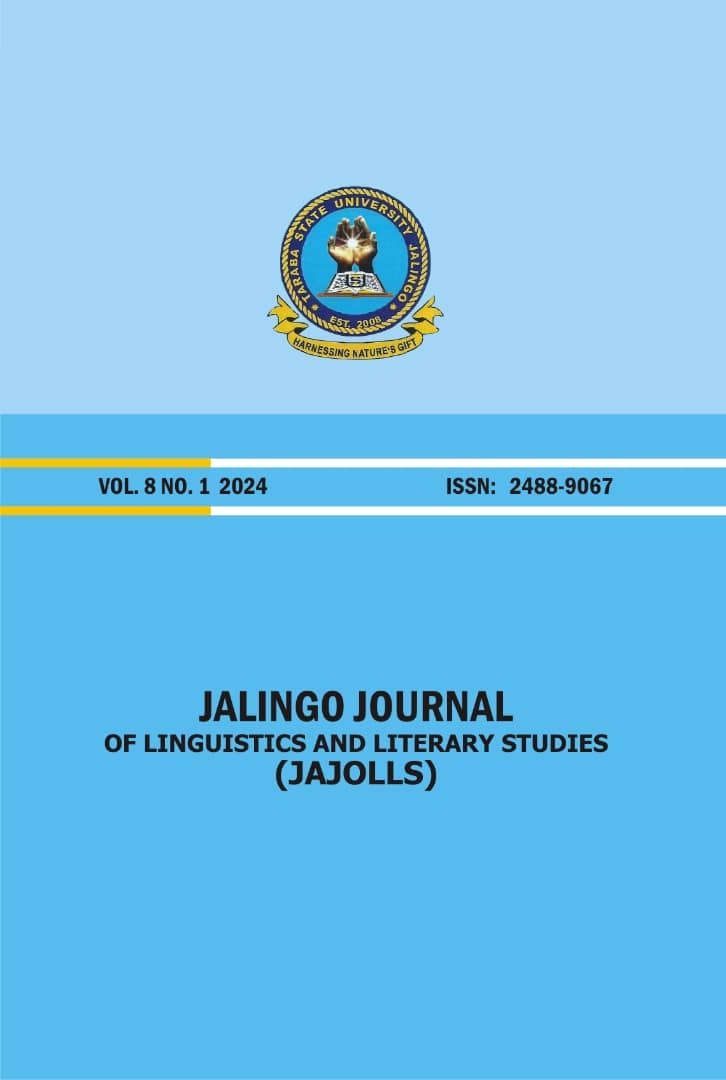Le feminisme ambivalent d’aminata sow fall : Une etude de la Greve Des Battu
Keywords:
Féminisme ambivalent, Féminisme chrétien, Féminisme islamique, Féminisme africain, Traditions africainesAbstract
This paper examines the ambivalent feminism of Aminata Sow Fall as depicted in her novel The Beggars' Strike. Using a qualitative approach, the analysis explores the various manifestations of feminism through the female characters. The study identifies different
feminist currents represented in the work, such as Christian feminism, Islamic feminism, and African feminism, and how the author reconciles feminism with African traditions. The findings reveal that Sow Fall's feminism is a moderate feminism that integrates social issues and does not adhere to the Western definition of feminism. The author presents female characters that embody both moderate and radical forms of feminism. Characters like Lolli and Salla Niang represent a more moderate feminism that operates within the framework of African traditions and values, while Sine and Raabi exemplify a more radical feminism that challenges patriarchal structures and embraces Western-inspired notions of gender equality. The paper contributes to the understanding of the complexity of feminist movements in the African context. It also highlights how Sow Fall navigates the tensions between feminism and African cultural identity, offering a nuanced portrayal of the diverse ways in which African women engage with and redefine feminism. The study underscores the importance of considering the intersections of gender, culture, and tradition in the analysis of feminist discourses in African literature.

